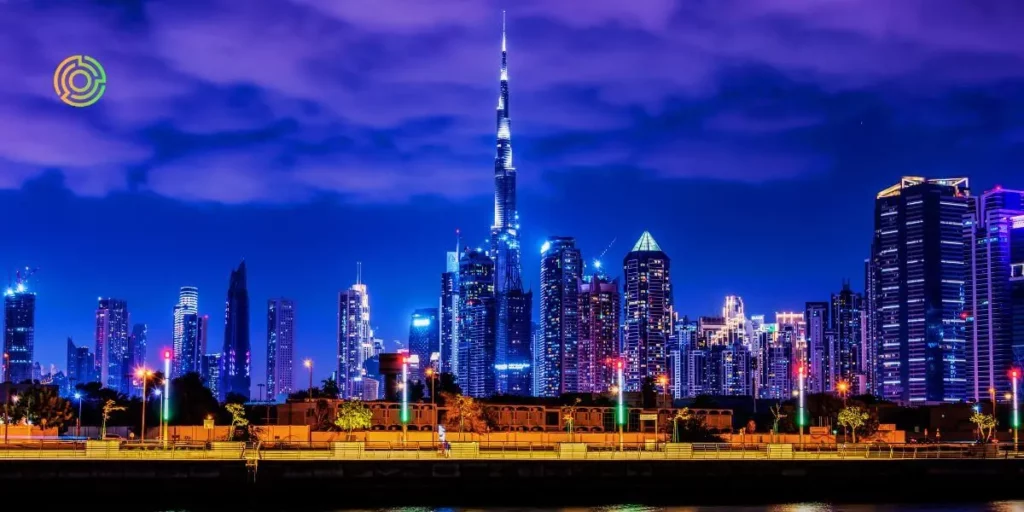In a thrilling development that’s set to make waves in the financial world, Dubai’s Financial Services Authority (DFSA) has just given its enthusiastic nod to Ripple’s XRP and Toncoin (TON), ushering them into the vibrant ecosystem of the Dubai International Financial Centre (DIFC). This exciting move not only widens the playing field for these virtual assets but also sets the stage for a financial revolution in the heart of the Middle East.
Let’s dive into the details with an emotional twist, uncovering how this significant decision is poised to redefine the financial landscape of Dubai and the broader region.
A Monumental Approval
The DFSA’s decision to welcome XRP and TON into the fold is nothing short of monumental. It means that licensed virtual asset firms within the DIFC can now seamlessly integrate these tokens into their services. It’s like rolling out the red carpet for innovation, and it’s happening right here in the heart of the UAE.
This approval also marks a historic moment as XRP and TON join the ranks of Bitcoin (BTC), Ether (ETH), and Litecoin (LTC) as the first assets to gain the DFSA’s endorsement under its virtual assets regime in 2022.
Dubai’s regulators have consistently demonstrated their pro-innovation approach, with this announcement as the latest example. @Ripple will continue doubling down in regions where there is regulatory clarity for crypto – a key reason we’re hosting #RippleSwell in Dubai this… https://t.co/PlIj7ubTcg
— Brad Garlinghouse (@bgarlinghouse) November 2, 2023
A Gateway to New Opportunities
Dubai, already known for its forward-thinking approach, is taking yet another step forward by embracing XRP and TON. This move opens up exciting new possibilities, particularly in the realm of regional payments and various other applications for virtual assets.
For those who may be unfamiliar, Ripple chose the DIFC as the home for its Middle East and North Africa (MENA) headquarters in 2020. They were drawn to Dubai because of its progressive regulations, extensive network, and its standing as a global financial powerhouse.
UAE: Leading the Way
The United Arab Emirates (UAE) has been on a mission to establish itself as a leading jurisdiction in the realm of virtual asset services. Dubai’s proactive stance has already been underlined with the formation of the Virtual Assets Regulatory Authority (VARA), an entity tasked with the oversight and regulation of virtual assets in the region.
To engage in cryptocurrency operations in Dubai, companies are required to obtain a Virtual Asset Service Provider (VASP) license issued by VARA. Notably, prominent names such as Binance, Coinbase, and Bybit have already secured these licenses, emphasizing the city’s growing prominence in the crypto world.
But that’s not all. The neighboring Abu Dhabi Global Market (ADGM) has also paved the way for cryptocurrencies with its own regulatory framework. It’s home to some big players, like Gemini and Rain, who’ve received licenses from the ADGM Financial Services Regulatory Authority (FSRA).
A Hub for Crypto Innovation
Dubai’s crypto-friendly environment has led to the emergence of over 700 licensed crypto businesses, a number that’s expected to grow exponentially in the years to come. The city’s commitment to fostering innovation and its penchant for staying ahead of the curve make it a fertile ground for virtual asset enterprises.
Moreover, Dubai is not just about cryptocurrencies. It’s at the forefront of Web3 technologies. In 2022, it unveiled its ambitious Metaverse Strategy, set to create 40,000 new job opportunities and inject $500 million into the national economy. Part of this strategy is the “DIFC Metaverse Platform,” launched in January 2023, to support Web3 initiatives.
In conclusion, Dubai’s embrace of XRP and TON is a thrilling chapter in the city’s journey towards becoming a global financial powerhouse. It signifies its determination to push the boundaries of innovation and explore new horizons in the world of virtual assets. As we watch the Middle East unfold its virtual asset landscape, Dubai remains firmly at the helm, leading the charge into an exciting digital future.
FAQs
1. Why is Dubai so interested in virtual assets?
Dubai’s interest in virtual assets is driven by its commitment to innovation and its desire to be at the forefront of financial technology. By embracing virtual assets like XRP and TON, Dubai is positioning itself as a hub for the future of finance.
2. What does the DFSA’s approval mean for virtual asset firms in the DIFC?
The DFSA’s approval allows licensed virtual asset firms in the DIFC to integrate XRP and TON into their services, expanding their offerings and potentially reaching a broader audience.
3. How does Dubai’s stance on cryptocurrencies compare to other global financial hubs?
Dubai’s proactive approach, coupled with its supportive regulatory framework, puts it on par with other global financial hubs like New York and London. It’s quickly emerging as a significant player in the world of virtual assets.
4. What is the significance of Dubai’s Metaverse Strategy?
Dubai’s Metaverse Strategy is a visionary plan to tap into the potential of Web3 technologies, creating new job opportunities and boosting the economy. It underscores the city’s commitment to staying at the cutting edge of technology.
5. How can companies get involved in the virtual asset landscape in Dubai?
Companies looking to participate in the virtual asset landscape in Dubai need to obtain a Virtual Asset Service Provider (VASP) license issued by VARA, the Virtual Assets Regulatory Authority. This license is essential to conduct cryptocurrency operations in the city.
Follow us on our social networks and keep up to date with everything that happens in the Metaverse!
Twitter Linkedin Facebook Telegram Instagram Google News Amazon Store
